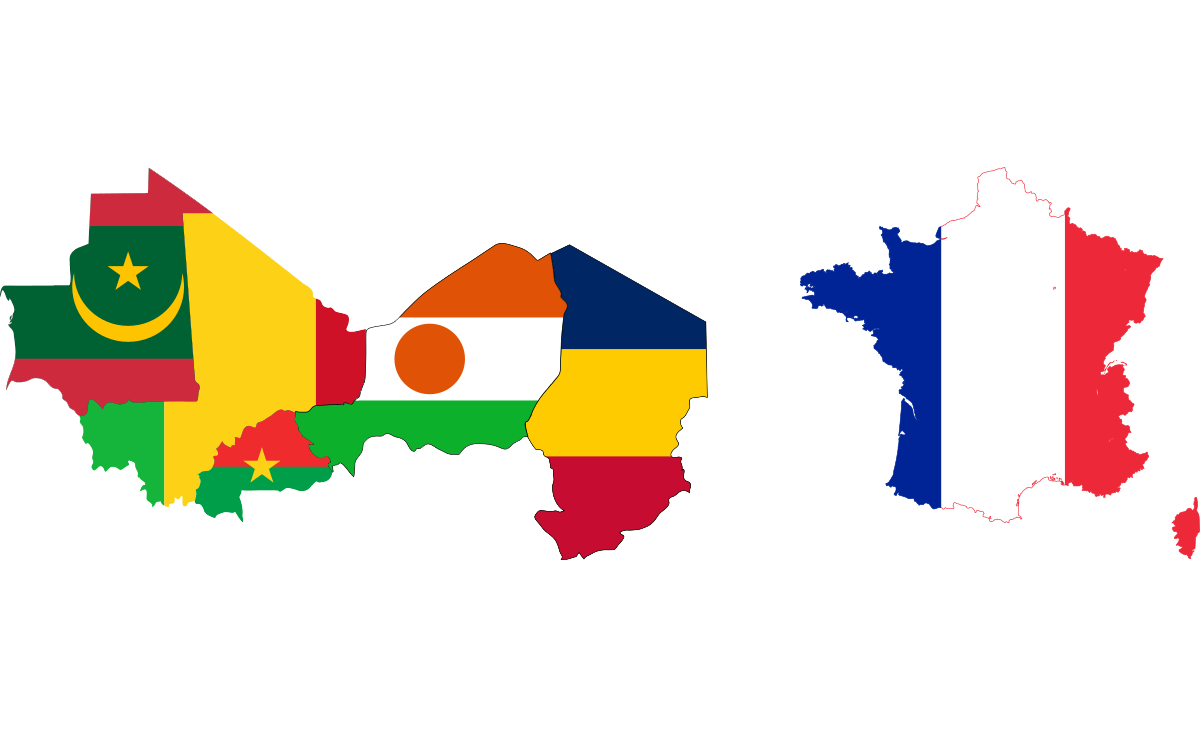Political and security tensions have escalated in the Sahel as Mali withdraws from the G5, and France relocates its troops to Niger following the termination of the Defense Cooperation Treaty (TCMD) by the Malian transitional authorities. The French presence had become increasingly unpopular with Mali’s government and its public, as well as with public opinion across other Sahel countries including Niger and Burkina Faso. On the other hand, Russia has garnered growing support in the region, and has expanded its influence in the Sahel by providing military training and weapons to Mali through the Wagner Group. The withdrawal of French troops from Mali and their relocation to Niger has many repercussions, most notably: the fragmentation of counter terrorism efforts, reducing coordination across the Sahel, and the loss of airstrikes as a tool in this respect, as they were carried out by the French forces. Moreover, the tensions between France and Mali have extended to other countries, especially since Paris condemned the coup d’état in Burkina Faso, and there is popular discontent with French military presence in Chad.
France is currently struggling to reposition and deploy its counter-terrorism forces in the Sahel after its fallout with the transitional authorities in Mali. The move to Niger was sanctioned by the large majority of the Niger parliament who agreed to host French troops withdrawing from Mali. This relocation could affect the security arrangements being formulated in that area.
The political and security landscape in the Sahel is therefore expected to grow more complex in the coming period and affect French military presence in the region. The dimensions of this complex situation can be outlined as follows:
Mali’s withdrawal from the G5: On May 15, Mali’s interim government announced its exit from the G5 and its various organs, including the joint forces, to protest being rejected as head of the G5 regional alliance. Although the G5’s effectiveness in subduing terrorist activity was limited, Mali’s sudden exit further undermines Sahel security, which has witnessed a marked increase in violence over the last year. According to the Armed Conflict Data Project (ACLED), reports of violence in the Sahel numbered 2005 incidents in 2021, up from 1,180 incidents in 2020. Fifty-eight percent of these incidents were reported in Burkina Faso. Moreover, the Global Terrorism Index ranks three of the G5 states in the top ten countries most affected by terrorism in 2021, which are in descending order: Afghanistan, Iraq, Somalia, Burkina Faso, Syria, Nigeria, Mali, Niger, Myanmar, Pakistan.
Growing differences between Paris and Bamako: Disagreements between France and Mali’s National Transitional Council took a turning point on the 23rd of April, when the latter announced the discovery of a mass grave near a French base amidst accusations of French crimes against Malian civilians. The National Transitional Council announced the cancellation of defense agreements between the two parties in response to the deliberately slow withdrawal of French forces, as President Emmanuel Macro had announced on February 18 that the withdrawal of French troops would take four to six months. Western critics suggest that the withdrawal period specified by was chosen for two reasons: First, it would allow these forces to be moved to a neighboring African state, such as the Niger, rather than to France. And secondly, it would allow for the possibility that over time, Mali’s interim government could reassess the situation, and restore the previous arrangements.
Rising anti-French sentiment in Sahel states: Discontent with France’s presence in the Sahel region is not confined to governments, but also extends to the general public in Burkina Faso, Mali, Niger and Chad, where the media has reported public protests and demonstrations rejecting French military presence. Protests were held in the center of Mali’s capital, Bamako, following the discovery of a mass grave near a French base in the country. In Burkina Faso and Niger, protesters blocked the route of a French military convoy on 27 November. Popular rejection of France’s military presence in the Sahel further complicates the landscape for France, given that the support of public opinion is an important factor in the fight against terrorism.
Moscow’s rising influence in the Sahel: Russia seeks to consolidate its presence in the Sahel in the context of international competition for influence. Russia has focused on strengthening relations with Mali’s transitional government. Russia’s invasion of the Ukraine has not prevented Moscow from pursuing its interests in the Sahel region. Russia sent fighter helicopters to the Malian army and other military equipment during March. It also provided political support to the National Transitional Council over the past two months, whereby Russia called for a meeting of the Security Council early this month, following Mali’s cancellation of its defense agreements with France.
Regional players welcome Russian presence: Russia may be trying to gain support from Mali’s neighboring states to increase its headway in the Sahel region. To this end, Russian relations with Algeria on the political and economic levels, will prove pivotal. On May 10th , Russian Foreign Minister Sergei Lavrov visited Algeria, and met with his Algerian counterpart Ramtane Lamamra. In return, France is attempting to ally with states in the region such as Mauritania to counter Russia’s advances.
Escalating violence and terrorism in the Sahel over the past year is expected to continue, especially in light of ISIS’s renewed activity, as it established a new branch operating in the Sahel region of West Africa. This indicates it intends to focus on operations within Mali, Burkina Faso and the Niger. In view of the complexities of the current landscape, and the problems confronting France’s military presence in Mali (and in the Sahel region as a whole), certain consequences can be expected, including:
Multiple counter terrorism styles: The Sahel region has become another arena for competition between international powers. Russia’s strategy to gain influence in the region is based on offering military cooperation and training to counter terrorism. The Wagner Group and the Malian interim government concluded a deal to deploy Wagner forces as a substitute for French troops. Between French forces moving to the Niger on the one hand, and the Russian Wagner Group making increasing inroads in the country on the other, there will be diverse and fragmented mechanisms employed in counter-terrorism efforts.
The loss of air strikes as a tool: Although it is important to build a comprehensive approach to combat terrorism, the use of a military, security focus remains a priority for Sahel states. As such, the France’s withdrawal will deprive these efforts from the airstrikes undertaken by French forces against terrorist organizations. Although Mali has received combat helicopters from Russia, French forces were more effective and experienced. The decline in air strikes will allow terrorist organizations to increase their activities.
Reduced coordination across Sahel states: The removal of French forces to Niger may result in tensions between the latter and Mali, which could exacerbate the negative impact of Mali’s withdrawn from the G5, on regional security coordination.
A negative outlook for France’s military presence in the region: The progressive deterioration of relations between France and Mali has extended to other countries in the Sahel and West Africa in general, affecting French operations in the fight against terrorism. For instance, France has condemned the military coup d’état in Burkina Faso. This may lead the transitional authority to reject any French military operations on its territory, including the deployment of air strikes. In Chad, there has been popular objections to French military presence, as evident by the demonstrations held on February 28 and May 14.
In conclusion, it can be argued that the political and security outlook for the Sahel region is not likely to improve in the coming period. The region has become another arena for competition between world powers seeking influence and control. Moreover, the recent succession of coups in Mali and Burkina Faso exposes the region’s political instability, and may lead to further violence and terrorism in the near future.


